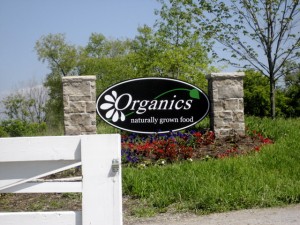Organic foods: Are they safer?


Organic or non-organic?

Organic and non-organic fruits and vegetables both look fresh, but the organic foods are very expensive.
The mineral content of organic apples, pears, potatoes, wheat, and sweet corn were compared to commercial varieties. Overall, the organic foods showed much higher levels of nutrient minerals and much lower levels of heavy metals.It made the case that organic food is not necessarily healthier than conventional food, and might actually be dangerous. Maure used in organic compost may be more harmful than the health risks from pesticide to humans. The pros in going organic is that organic food is free from artificial chemicals, pesticides antibiotics and fertilizers. And it is free from genetically modified ingredients. Organic foods show that they have more vitamins and beneficial trace elements than conventional green food and so may be more nutritious.
There are different views on whether organic foods are really helpful to us, or in fact may be harmful. In the future science will have to address these issues. As more studies are being done, our views about organic foods might change. In the past, we thought the egg was the perfect food. Now we know that although nutritious it contains high levels of cholesterol. Who knows what will be considered healthy eating in the future? At this point, organic foods seem to be beneficial.

Organic Apple



Organic Raspberry

Non Organic Raspberry

Organic Strawberrys

Here are other differences between conventional farming and organic farming:
| Conventional farmers | Organic farmers |
|---|---|
| Apply chemical fertilizers to promote plant growth. | Apply natural fertilizers, such as manure or compost, to feed soil and plants. |
| Spray insecticides to reduce pests and disease. | Use beneficial insects and birds, mating disruption or traps to reduce pests and disease. |
| Use chemical herbicides to manage weeds. | Rotate crops, till, hand weed or mulch to manage weeds. |
| Give animals antibiotics, growth hormones and medications to prevent disease and spur growth. | Give animals organic feed and allow them access to the outdoors. Use preventive measures — such as rotational grazing, a balanced diet and clean housing — to help minimize disease. |

Organic Foods Labels

Baby Goat on the organic farm.jpg

Organic Foods Farm

Organic Oranges Tree Farm

Organic Peaches Tree

Organic Apples Tree

Organic Egg Farm

Organic Cow's Milk Farm
- 100 percent organic. Products that are completely organic or made of all organic ingredients.
- Organic. Products that are at least 95 percent organic.
- Made with organic ingredients. These are products that contain at least 70 percent organic ingredients. The organic seal can't be used on these packages.





No comments:
Post a Comment